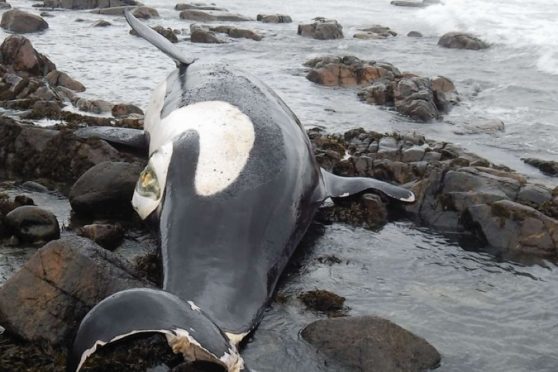Toxic chemicals could be behind the impending extinction of Scotland’s only resident pod of killer whales, a new report has suggested.
The pod – known as the West Coast Community – have not produced a single calf in 20 years and are destined to die out.
Earlier this month, their number was reduced to eight when one of the four females – called Lulu by researchers – died on Tiree after becoming entangled in fishing gear.
Now a new research paper says the orca could vanish from Scottish waters as a result of the lingering effects of toxic chemicals banned more than 30 years ago.
The Scottish Marine Animal Strandings Scheme was one of the co-aurthors of the report and stressed:”This is an internationally important area of research and shows that PCB pollution still impacts populations of killer whales and other dolphins in European waters.”
Scientists say European seas are a global “hotspot” of contamination from man-made polychlorinated biphenyls (PCBs), which weaken the immune systems of whales and dolphins and seriously affect their reproduction.
The research published in the journal Scientific Reports states: “We found that the blubber of killer whales, bottlenose dolphins and striped dolphins in Europe contain among the highest concentrations of PCBs on the planet. Some populations of killer whales in European waters may therefore be facing extinction, as a result of the impact from these lingering toxic chemicals, which have been banned since the 1980s,” it says.
PCBs are a group of man-made chemicals previously used in the manufacture of products including electrical equipment, flame retardants and paints. High exposure to PCBs is known to weaken cetacean immune systems and markedly reduce breeding success by causing abortions or high mortality in newborn calves.
Experts at the international conservation charity, the Zoological Society of London (ZSL), say the resident Scottish killer whale group “will go extinct” in the future as no young have been recorded in more than 20 years.
And other killer whale and dolphin populations around Europe face the same fate.
The researchers suggest a failure to breed could be down to high levels of man-made PCBs building up in the animals’ body fat.
Dr Jepson’s team will analyse samples taken from Lulu to see if her death can shed any more light on the issue of the toxic effect of PCBs.
